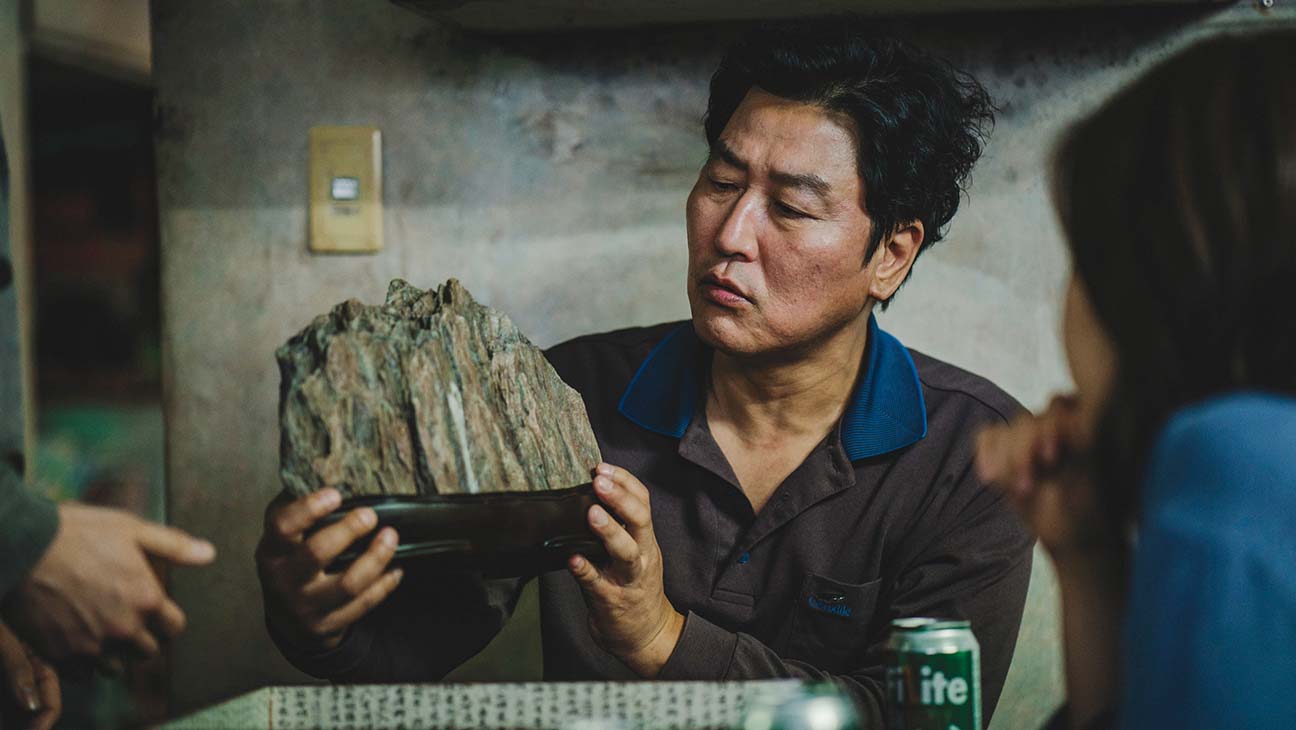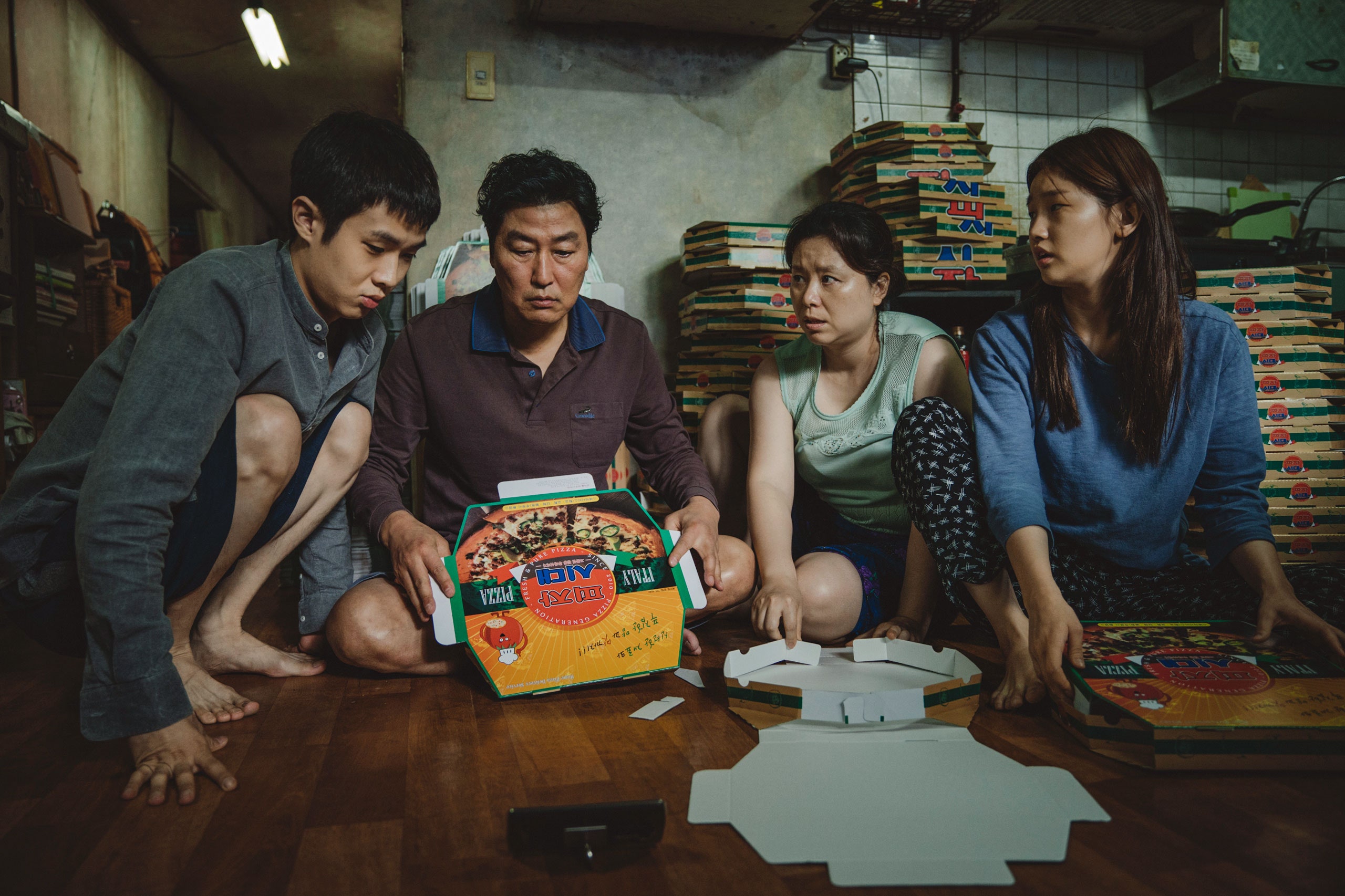Published in Cinema Skyline, Vol. 5 (October–November 2019)

What do our blockbusters say about ourselves? Autumn is Oscar season’s meteor shower, with films we’ve been hearing about all year now entering the atmosphere, and those burning brightest currently are Bong Joon-Ho’s vainglorious Parasite, alongside its acrimonious American counterpart, Joker. The two are in many ways cut from the same cloth, ignoring an enormous gap in quality and style. Both are crowd-pleasers that attempt to do more than entertain. And both, notably, establish their stories around an act of violence, perpetrated by poor protagonists upon their much wealthier neighbors. Film historians of the future might examine this moment in time, with our widening stratification of global wealth, and wonder just what kind of wish fulfilment we were getting this fall from a trip to the flicks.
As far as Parasite goes, it plays out as a kind of fable for our current era, with just enough unreality to show us the truth of the moment. Bong’s film tells the story of an unequal relationship between the working-class Kims and the much wealthier Parks, who unsuspectingly take them in for a host of different purposes. Kim Ki-woo (Choi Woo-sik, the story’s antihero) gets a job with them first as an English tutor, and soon his family hatches a plan to employ themselves in all the various part- or full-time positions available in the Parks’ palatial modernist mansion. Ki-woo offers his sister up as an art therapist for the Parks’ youngest, the spoiled Da-song. A chauffeur and housekeeper are supplanted. The Kims, feigning a purely professional relationship with one another, move with remarkable swiftness into their new positions. A good chunk of the film is spent in montage, showcasing this smooth transition into middle class, which is then immediately threatened. Much as it might seem, the narrative is not interested in exploring this labored relationship from the inside, but rather exploding, and exploiting, all the kinetic potential it contains.
Bong is the first Korean director to achieve truly global renown, and he has done it by crafting adrenaline-fueled and bloody stories ventriloquizing current social issues (as well as by crossing over to Hollywood, working with Jake Gyllenhaal and Tilda Swinton). Parasite is his first Korean-language film in ten years, in many ways a return to form. Ironically, it’s done better in the box office so far than either of his past two international productions,Snowpiercer (2013) and Okja (2017). After winning the Palme D’Or at this year’s Festival de Cannes, Parasiteentered U.S. theaters with the best opening weekend of any foreign language film to date. It will be, for many people, the only foreign film they see this year, and, like Roma in 2018, has a good shot of transcending its foreignness to get a spot in the Best Picture category. It should.

Bong is undeniably a master of his craft, and in all of his recent films he takes risks few directors today would dare to. My hang-up with his earlier work, Okja in particular, is that his grandiose polemics against our global issues often belittle the issues themselves, transporting them to some near future rather than taking them head-on. In this respect, Parasite is a triumph, the director’s strongest picture to date. But as with his other films, we often miss through pure force of delivery the nuances which come with such charged subject matter.
In Parasite, we are absent the feeling of class, it’s ability to translate net worth into self-worth. The Neorealist films of 1950s Italy were (and still are) revolutionary not just for foregrounding working-class characters, but for forcing the audience spend time with them – making visible the labor our class structure hides from us. That this is today still a radical act shows that we haven’t come very far. And for all the time we spend with the Kims in Parasite, we see very little of the work they actually perform. In the montaged spectacle of their ascension to middle class, the film allows us to forget that their only salvation is in their ability to be useful to others. This is not, in fact, the parasitic relationship the title implies. The Kims are more useful to the Parks than they are using them. They are earning their keep.
Our allegiances are of course with the poorer family, but by glossing over the inevitable humiliations that come with the Kims’ servitude, the film leaves us unprepared for that moment when humiliation explodes into hostility. It is the inevitable climax of the story, although it comes as a surprise when it finally happens, so caught up are we in the gyre of class conflict within which the Kims struggle – literally punching up and kicking down – to secure their idyll of middle class security. Perhaps this is because such security no longer exists, in Seoul or the United States today. It’s a notion Parasite seems eager to posit, but isn’t capable of really articulating. A smarter film would have gone slower, sacrificing the shock value Bong is always quick to capitalize on, to deliver a greater blow that is here taken for granted: In this world, which is our world, a triumph for the working class comes only in their ability to make others’ lives easier. ︎